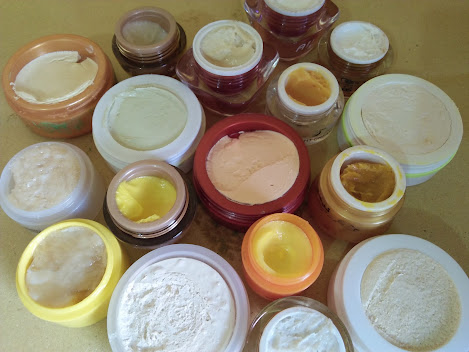Filipinos Abroad Reminded Not to Sell Mercury-Containing Cosmetics
Business-minded Filipinos residing or working abroad should not sell skin lightening products that have been identified and/or banned for containing mercury, a highly toxic chemical not allowed in such cosmetics.
The toxics watchdog group EcoWaste Coalition issued the reminder to enterprising overseas Filipinos upon learning that mercury-containing cosmetics are being sold in physical and online “Pinoy product stores,” particularly in Bahrain, Hong Kong, Japan, Malaysia, Qatar, Saudi Arabia, Taiwan and United Arab Emirates.
“Filipino entrepreneurs are advised to be aware of the regulations on the sale of health products like cosmetics in their country of residence or work, and ensure they do not promote and sell items that pose health risks,” she added. “Selling unsafe products may even result in civil and criminal liabilities, which can jeopardize their visa status.”
Among the cosmetic products advertised in the Facebook pages of physical and online stores catering to overseas Filipinos are mercury-laden Goree Beauty Cream with Lycopene and Goree Day & Night Beauty Cream from Pakistan that have been banned by governmental authorities in the Philippines, as well as in Bangladesh, Brunei Darussalam, Hong Kong, New Zealand, Singapore, United Kingdom, and the USA.
Also found on sale in these specialty stores is Thailand-made 88 Total White Underarm Cream, which is banned in the Philippines and the USA, and Indonesia-made Collagen Plus Vit E Day & Night Cream, which is banned in the Philippines.
There have been cases of mercury poisoning among Filipino women in the Philippines, as well as those living abroad, due to the use of cosmetics that claim to whiten the skin and remove blemishes and wrinkles, the EcoWaste Coalition warned.
The group recalled that the Philippine Consulate General in Hong Kong had to issue a health warning in 2014 after a 28-year old Filipino domestic helper was hospitalized because of mercury poisoning linked to her use of a mercury-laced cosmetic cream.
The EcoWaste Coalition urged the government, particularly the Departments of Health, Migrant Workers and Foreign Affairs and the Philippine embassies and consulates, to come up with a program that will orient and guide Filipino entrepreneurs abroad on pertinent product safety laws and regulations, including the global ban on mercury-containing skin lightening cosmetics under the Minamata Convention on Mercury.
Finally, the group encouraged overseas Filipinos to refrain from buying and using unauthorized skin whitening cosmetics, those with unknown ingredients or those from unreliable sources, stressing that such cosmetics may contain mercury and other hazardous substances, which can put their health at risk. "It's better to be safe than 'white' and sorry."
Reference:
https://www.fda.gov.ph/wp-






Comments